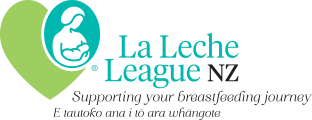Sudden Weaning
On July 26th this year, the day my little girl Jessica turned 11 months, she awoke with a bad cold. She refused her morning breastfeed and later in the morning after one small nursing began refusing every time I offered her the breast. I was surprised, as up until that day, she had breastfed happily several times a day and often once or twice during the night as well.
By that night I knew something was wrong as she was unhappy and crying a lot and I suspected an ear infection. I was expressing milk and offered her that in a cup. She was otherwise drinking water
happily from her cup and still eating. The next morning I took her to our doctor who confirmed an ear infection and like me was confident that she’d start breastfeeding again once her ear healed up and she wasn’t in pain. He also felt that a blocked nose wouldn’t be helping although she’d had colds before that had hadn’t affected her feeding.
A month later, in August, Jessica celebrated her first birthday and, no, she hadn’t returned to breastfeeding. What started as a nursing strike turned out to be a sudden weaning.
For the first week I expressed milk regularly
and fed her that in a cup as well as offering
her the breast. Every time she would pull
away and cry. After a while she would just
look at it, then look at me as if to say, “What
exactly are you trying to do here Mum?”
I was in contact with my La Leche League
Leader right through this time and also
spoke to a lactation consultant. Both
suggested that I calmly offer the breast to
Jessica, perhaps while she was drowsy, or
in the bath, but never to force it on her. I
tried everything but my very independent
little girl was not to be fooled.
My feeling is that the pain of feeding with an
ear infection was the first step for her to wean
and that she just decided within herself that
she no longer wanted to breastfeed. I
breastfed her older brother until he was ready
to wean (three and a half years) and intended
doing the same for Jessica so this sudden
change of plans, initiated totally by her, came
as a big surprise.
As the weeks have gone by I have recovered
from my initial disappointment and shock at
her weaning. There have been a lot of
changes for us both. My milk supply took two
to three weeks to reduce to a level whereby I
didn’t have to express at all. Jessica stopped
waking in the night from the day she stopped
feeding (a bonus for us all). She is not
particularly keen on drinking any milk but will
drink a little bit of goats’ milk formula in a cup
with breakfast and before bed (she’s had
reflux and doesn’t tolerate dairy very well). She eats well and drinks lots of water during
the day. We have had to find other ways to
be close too, including more cuddling, carrying (I have a backpack that gets a good
workout every day), playing and reading
together.
It was quite stressful when Jessica weaned
so suddenly and there have been lots of
adjustments for us both. There are many
people who think I’m lucky as I didn’t have to
wean her but I’m always quick to say that I
had no intention of weaning her, not in the
commonlyaccepted way anyway. I’m
learning very quickly that no two
babies/children are alike. Already mothering
my two children as been very different for
each and I expect I have so much more to
learn.
LeeAnn Michelle, Balclutha Group
Aroha November/December 2004
